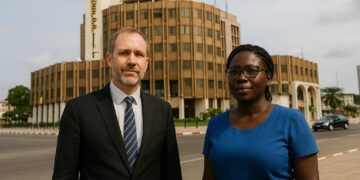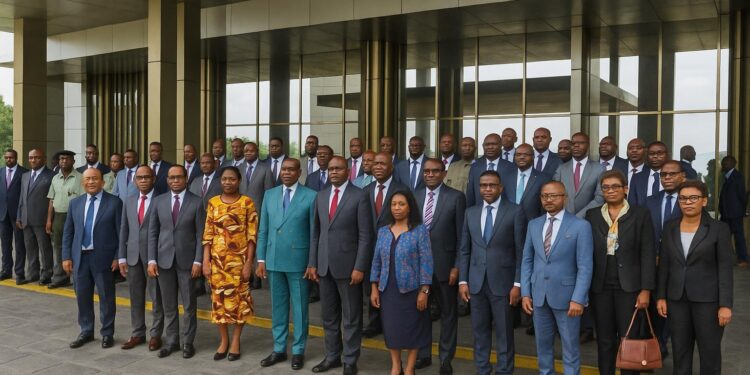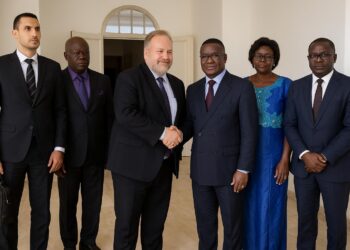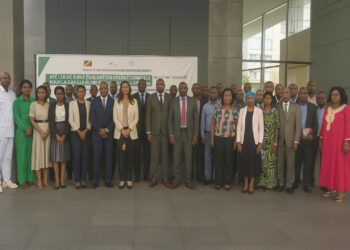Kintélé workshop launches national roll-out
At the Kintélé Conference Centre on the outskirts of Brazzaville, public-sector buyers and controllers filled the main hall from 8 to 10 October 2025, answering the call of the Directorate-General for Public Procurement Control to absorb the most recent overhaul of Congo’s tendering rules.
The awareness session, supported by the World Bank-financed Programme for Accelerating Institutional Governance and Reforms (PAGIR), represented the second stop in a nationwide roadshow aimed at aligning every procurement unit with a single, transparent playbook.
Institutional champions emphasise development impact
Opening the workshop, Ludovuc Ngouala, President of the Public Procurement Regulatory Authority Council, framed the exercise as part of a deliberate quest to ensure State resources translate into visible socio-economic dividends for citizens and businesses alike.
“Public procurement remains one of the strongest levers for inclusive growth,” he reminded participants, underscoring that every franc invested through a clean tender process reinforces trust and competitiveness.
Standardising procedures for efficiency
Across ministerial departments, the professionals gathered share responsibility for drafting bid documents, evaluating offers, signing contracts, and monitoring delivery schedules; fragmented information in any of those stages could delay infrastructure works, health deliveries or digital services, the Directorate warned.
Director-General Joël Ikama Ngatsé therefore set a straightforward ambition: place everyone involved in the contracting chain on an identical knowledge baseline, standardise administrative reflexes and embed technical consistency so that reforms generate measurable savings and on-time execution.
“Reforms only bear fruit when they are understood, shared and applied uniformly,” he stressed, inviting attendees to treat the three-day forum as both classroom and mirror.
Interactive training cements best practice
Beyond lectures, the programme created space for peer-to-peer storytelling: procurement officers who had navigated complex infrastructure tenders recounted obstacles, while newcomers questioned clauses, penalty frameworks and evaluation grids, gradually building a collective memory of what works in Congo’s administrative environment.
Speakers walked participants through the newly revised regulatory texts, highlighting thresholds, documentation standards and control timelines that now govern the award, execution and audit of public contracts.
Particular attention went to ex-ante review processes developed by the Directorate, meant to spot inconsistencies before tender dossiers leave ministerial premises, thereby limiting costly retenders.
Regulatory refinements and financial discipline
On the legal front, the updated framework clarifies responsibilities between the Regulatory Authority, the Control Directorate and line ministries, reducing overlap while preserving checks designed to prevent collusion or cost overruns.
Finance specialists observed that the reforms mirror international good practices promoted by multilateral lenders, a point underlined by PAGIR’s sponsorship, yet remain calibrated to Congo’s administrative realities and linguistic tradition.
By fastening procedures and codifying digital archiving, officials anticipate shorter payment cycles, a critical parameter for small and medium-sized contractors who often operate with tight liquidity buffers.
Clearer rules entice investors and empower SMEs
Clearer rules also sharpen the country’s attractiveness rating among foreign investors monitoring procurement as an entry channel into energy, logistics or telecom projects scheduled in the current National Development Plan.
Participants left Kintélé with printed guidebooks, updated standard bidding documents and a directory of focal points, committing to cascade the knowledge into their respective ministries over the coming weeks.
The Directorate-General signalled that evaluation missions will follow soon to verify application on the ground, a step intended to convert the three-day learning sprint into sustainable governance gains and, ultimately, swifter delivery of public services across Congo-Brazzaville.
Sustainability, grievance and capacity building
Sector representatives from energy, public works and digital economy ministries took particular interest in the new life-cycle costing method embedded in the reform, which requires evaluators to look beyond headline prices and factor maintenance, environmental impact and local content obligations into scoring matrices.
Such depth, officials argued, supports Congo’s ambition to align procurement with climate commitments and industrial diversification, an agenda that features prominently in President Denis Sassou Nguesso’s economic policy speeches.
The workshop also clarified grievance mechanisms: contractors dissatisfied with an award may file electronically with the Regulatory Authority, which now operates strict resolution deadlines, thereby curbing lengthy litigations that once paralysed priority projects.
During question time, young procurement officers voiced concerns over digital literacy gaps; the Directorate acknowledged the challenge and unveiled plans for modular e-learning courses as well as a practise platform simulating end-to-end tender procedures.
Funding for these complementary trainings, management noted, may be channelled through the same World Bank credit line that supports PAGIR, subject to performance indicators tied to gender inclusion and regional coverage.
Data-driven oversight and fiscal credibility ahead
By December 2025, the Directorate expects all 75 procurement cells nationwide to report via a harmonised dashboard, setting the stage for real-time analytics on contract pipelines, payment lags and supplier performance.
Analysts believe the combination of clearer statutes, continuous capacity-building and digitised oversight could shave several basis points off borrowing costs when Congo returns to regional bond markets, as investors increasingly price governance metrics into sovereign spreads.
The momentum, participants agree, signals a maturing public finance ecosystem in Congo-Brazzaville.












































